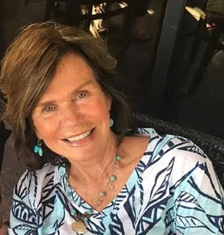 With autumn coming to a close, the holidays are quickly approaching. This year the season is cloaked under the umbrella of a global pandemic, bringing anxiety, depression, fear, and doubt. We may not be able to visit with loved ones or carry on cherished traditions in the same way as usual. We may already be feeling overwhelmed by the state of uncertainty in the world. Dealing with our everyday lives during a pandemic can appear insurmountable. Add the pressure of the holidays, and things can feel like a pressure cooker.
With autumn coming to a close, the holidays are quickly approaching. This year the season is cloaked under the umbrella of a global pandemic, bringing anxiety, depression, fear, and doubt. We may not be able to visit with loved ones or carry on cherished traditions in the same way as usual. We may already be feeling overwhelmed by the state of uncertainty in the world. Dealing with our everyday lives during a pandemic can appear insurmountable. Add the pressure of the holidays, and things can feel like a pressure cooker.
Families struggling with addiction can be especially impacted. Is it possible for them to deal with these troubling times and still thrive as a family unit? Yes, every family, no matter their circumstances or the degree to which addiction has impacted them, has the ability to tap into their toolbox for new ideas and inspiration. There are endless possibilities for growth and healing.
As a professional, I’ve been privileged to witness many families walk the path of recovery. It’s not uncommon for folks new to the process to be hung up on what is going wrong, instead of focusing on the strengths and survival skills that their family already possesses. A shift in focus can be the most helpful – what are the ways in which each person in a family copes in the best way they know how? What protective traits are already present?
These coping skills and protective mechanisms are the hallmark of resiliency – the ability to bounce back, adjust, or recover from difficulties and challenges.
How can we offer the best support to families struggling with addiction? How do we help them tap into their resiliency?
A first step is to look within. Begin by taking a long, hard look at your own limitations when providing support to a family on the recovery path. Take an inventory of how you think, feel, observe, and act. We are professionals, but we are also human beings, and all of us need to be aware of the “shoulds” lurking in the corners of our unruly minds. The impact of our personal experiences as small children and teens, and our own journeys into and through adulthood, will definitely come into the picture as we support these families.
Secondly, what if we were to take the “beginners mind” approach with families? What if when they present themselves to us, we notice the ways in which they are already doing pretty well? Yes, imagine that! They can be functioning, albeit somewhat haphazardly, in a way that seems to be working for them. Can we accept that? Can we start with getting to know them from a whole different perspective?
It’s vital to remember that within a family system, each person is adjusting and doing the best they can to cope. It is not in the best interest of the family for us to pathologize, label, or criticize patterns of behavior that have been integral to survival. It’s normal and natural to revert back to old survival skills, even if they may not be the most helpful. If we encourage a shift in focus from pathology to resiliency, coping feels less overwhelming.
I recently had the experience of working with a family of five who were looking for support to help their mom. She was seriously in trouble and had not maintained any sobriety after a 30 day treatment experience. Her condition included many physical manifestations of the disease of alcoholism.
Instead of starting with defining the “dysfunction” of their current status, I chose to explore their family situation - Who were they as individuals? What work they were in? What interests were they be pursuing? Most importantly, what qualities of their family were they most proud of?
Before any talk of the mom’s struggle with alcoholism, we started with strengths. Throughout our following sessions, this family demonstrated many positive and healthy qualities. One member was already attending Al Anon, another had devoted a great deal of personal research into the disease progression, and two had attended a family program in the past. They were now working together to anticipate ongoing problems and provide the best support to each other and to their mom.
I was witnessing resiliency in action and it was important that I honor it. I took the time to acknowledge and validate their involvement with each other, their compassion and concern for their mom, and their determination not to give up on her.
What was not important was to provide them with every bit of information that I knew about family recovery, either as a professional or as a sober person myself. Nor was it important to label their behaviors as “sick” and codependent. Instead we worked from the skills that they already possessed and built from there.
The struggle in families dealing with addiction and recovery is that each person is continuously trying to find balance in different ways. They are moving through a complicated process, and often not at the same time. I encouraged the family to take a look at where each individual felt they were in their own recovery process. This brought a deeper understanding of what their own needs were, regardless of whether or not their mom stays sober.
Dr. Stephanie Brown skillfully outlines the stages of the family disease in her book, The Alcoholic Family in Recovery:
Stage 1:
The 1st stage is the Drinking Stage. It is highlighted by the family denying that any family member has a drinking problem, while at the same time giving reasons to anyone who will listen as to why the drinker has the right to drink.
Stage 2:
The Transition Stage is a complex ebb and flow during which the alcoholic works through no longer drinking, and the family struggles with the transition of living through the end of the drinking to the beginning of abstinence. The individuals or family are beginning to recognize the reality of the addiction and the loss of control. They may begin to challenge the beliefs that supported drinking/using and denial. Individuals or family are moving toward “rock bottom” and/or surrender.
Stage 3:
Early Recovery is characterized by steady abstinence, as new behaviors and thinking is integrated. Individual development continues to take precedence over the family system.
Stage 4:
In Ongoing Recovery, individual recoveries are solid, and attention can be turned back to the couple and the family.
The challenging aspect of this process is the following - Just because a person goes into recovery and starts getting help, the rest of the family may not be going through the process at the same time. This can result in family dynamics feeling very unbalanced. Reviewing the stages aids family members in identifying where they fall in the process and anticipating what they need for support.
As we enter the holiday season, I am encouraging this family to tap into their own resources. With education on the stages of family recovery, they are better equipped to move forward. Other families can do the same.
Developing a care plan, a GPS, so to speak, of how to maneuver the holidays sanely and soberly is vital. Included in this should be a plan for family members so they are not in fearful wait of their loved one picking up a drink. The plan can be simply structured and a written set of points. It might include:
- Practice gratitude. Take some time to look at what each person is thankful for.
- Identify clear boundaries about what each person will do to for their own self-care. Is an alcohol-free holiday celebration important? What is the exit plan if problem drinking becomes an issue?
- Plan some together-time, if not in-person, then virtually. If a family is unable to be together due to the pandemic can they plan FaceTime calls or Zoom events? How about an outdoor walk/hike with extended family members?
- Include everyone in the planning. This can be mutually decided upon, focusing on the strengths of each member and including everyone who chooses to participate.
- Focus on presence, not presents. This is especially important if there are children in the family. Kids appreciate quality time with loved ones. It can be as simple as a game of cards or decorating together. There is no doubt that a parent’s sobriety is one of the best gifts they can receive at any time, but especially during the holidays.
Holidays are a time of celebration – and also stress. Walking clients through the process of recognizing strengths, anticipating needs, and making a plan can better prepare them for a safer, saner and sober holiday (even during a pandemic). I recommend a gentle reminder that even in the best of times, holidays often amplify family struggles. With preparation, care, and realistic expectations, we can meet these challenges and unveil the hidden gifts of the season.


